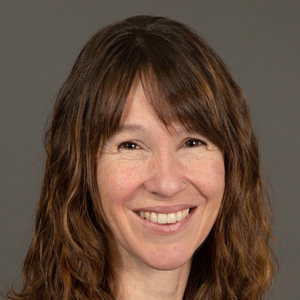It’s Time to Build Dementia Care Competency in Direct Care
As I was sitting in a seminar at the National Academies of Sciences, Engineering, and Medicine (the Academies) in Washington, DC last month, every phone in the room suddenly buzzed at the same moment—the capital was under a tornado warning. We all looked at each other, agreed that it was safest to remain where we were, and resumed the meeting—because we had another crisis to confront: the crisis of dementia care.
By 2050, barring major medical advances, nearly 14 million older Americans will be living with Alzheimer’s disease, the most common form of dementia—up from 5.8 million in 2019. In the same period, the total cost of caring for individuals with Alzheimer’s disease and other forms of dementia is expected to increase from $290 billion to more than $1.1 trillion (not accounting for unpaid care). Unfortunately, our health and long-term care workforce is far from prepared to meet the growing need for dementia care.
The mismatch between dementia care needs and workforce capacity was the impetus for the May 23 seminar, Gaps in the Dementia Care Workforce, which was hosted by the Committee on Population at the Academies and supported by the National Institute on Aging. The goals of the seminar were to share current knowledge and identify pressing research opportunities on this topic.
Here’s one surprising fact that emerged early in the meeting. There are currently about 6,900 certified geriatricians in the United States, which is fewer than there were over a decade ago, when Retooling for an Aging America identified the urgent need for more physicians to provide specialized care for older adults. (The geriatrician count then was just over 7,100.) Given that dementia prevalence increases with age—rising to 1 in 3 adults over the age of 85—and that the population of older people is growing rapidly, this seems like a shocking lack of progress, if not a step backward.
But that’s only part of the story. As well as “big-G” geriatricians—a cadre of specialists who can drive knowledge and best practices in the field—we also need exponentially more “little-g” geriatricians, meaning health care providers in a range of roles who are prepared to care for older adults, including those with dementia, as part of their general practice. In other words, we certainly need more specialists, but we also need a better baseline of geriatric and dementia care competence across health care occupations.
This argument resonates in direct care, too. Direct care workers are a critical component of the dementia care workforce, providing respite care for individuals with early-stage dementia and increasing levels of assistance with activities of daily living for those at more advanced stages of their disease. Yet dementia care training content is only mandated at the federal level for nursing assistants in nursing homes, and state-level training requirements vary widely, mirroring the inconsistent training standards for these workers overall. Only 13 states have enacted dementia care training requirements for home health aides or personal care aides.
Dementia-specific training is essential for preparing direct care workers to appropriately interpret and address the needs of individuals with dementia, who often experience impaired communication, disorientation, confusion, and/or behavior changes. Dementia training has also been shown to improve job satisfaction and reduce stress among direct care workers, which in turn helps stabilize the care environment and improve care outcomes.
But as well as increasing dementia care competence across the direct care workforce, we should also consider building a cadre of “big-D” dementia care specialists within the workforce—like California’s pilot-tested Dementia Care Specialist role, but for direct care workers rather than clinical professionals. With additional training and compensation, dementia care senior aides—that’s one possible job title—could educate and support other workers in caring for people with dementia. They could help family caregivers and workers identify and address behavioral triggers. They could support individuals with dementia through care transitions, which can be a particularly vulnerable time. They could serve as a link between frontline care and the interdisciplinary care team, to ensure that health-related concerns are appropriately observed, recorded, reported, and addressed.
This advanced dementia care role is rare but not unprecedented. Massachusetts, for example, has established an Alzheimer’s Supportive Home Care Aide role for home care workers. Although the additional training is modest (12 hours), aides receive further training as well as group supervision through quarterly meetings, which helps ensure that they continue building their skills over time.
Investing in a dementia care senior aide role would serve two related goals: improved care quality for individuals with dementia and career advancement for experienced and motivated workers. Robust research is needed, though, to demonstrate the return on investment, including lower health care costs, for example due to fewer emergency department visits and avoidable hospitalizations, and increased stability in the workforce.
If we are to weather the growing dementia care crisis, we must increase dementia care competency among all direct care workers, as among other health care professionals. But just as we have geriatricians and other professional specialists to move the field forward—albeit not as many as we need—we can also maximize impact by investing in a specialized dementia care role within direct care. As well as strengthening the dementia care capacity of the workforce, this career advancement opportunity could serve as a critically needed recruitment and retention tool, thereby benefiting the long-term care sector overall.
To access the background information and presentation materials from the “Gaps in the Dementia Care Workforce” seminar, please click here.






